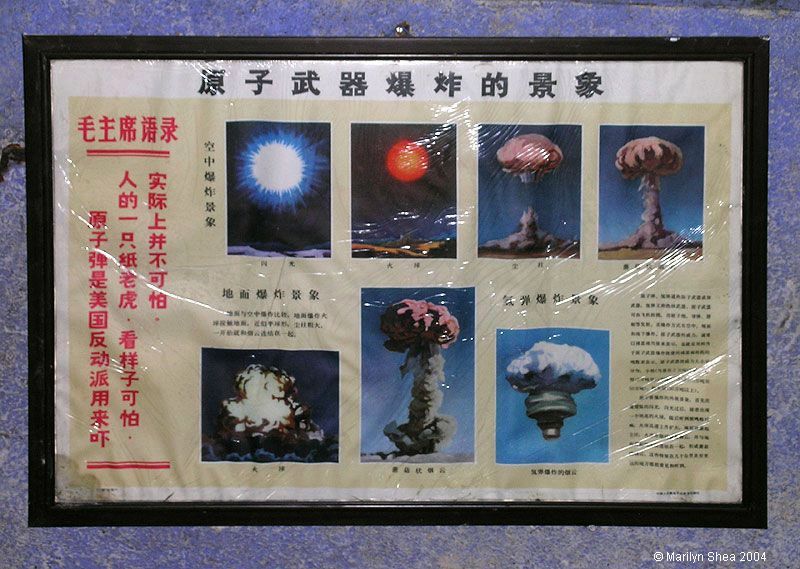 |
| In June of 1941, Hitler invaded Russia with 4.5 million troops. Even then, the Soviets did not ally themselves with the Chinese against the Japanese. Moral support was all that was offered, as well as political criticism. Stalin was overextended fighting the Germans while maintaining a defensive force in the east against incursion by Japan. Stalin did not declare war on Japan until Aug 8th, 1945, two days after the atomic bomb was dropped on Hiroshima, Japan and seven days before Japan surrendered.
Following the end of the war, the Russians simply did not believe that the CCP could oust the Guomindang. They allowed the Communist troops to take over Manchuria and sold them weaponry, but maintained pressure on the Communists to work within the Guomindang. Over the next four years, as the Communist forces won victory after victory, the Russians gave them increased support. While Russia was quick to recognize the People's Republic of China, they continued to treat the Chinese as newcomers to the party, newcomers who needed wise instruction. The Chinese leadership had learned that it could survive without Russia during the long years in Yan'an and the Japanese occupation. They viewed their relationship with the Soviets pragmatically. They needed aid to repair their economy and rebuild and they needed an ally on the world stage. During the late 1950s and early 1960s the relationship between the two power blocks became strained. As China stabilized and built her army, she became, not a buffer, but a potential threat to the Soviet Union. As China built its heavy industries it became less dependent on Russia both economically and politically. More and more often, Mao Zedong deviated from policies that the Soviets thought to be the dogma of Marxist-Leninist principles. In May of 1962, 60,000 Uighers escaped into the Soviet Union. The Uighers are a Muslim minority in the west of China. They were the majority population in the western province Xinjiang and ethnically related to the residents of the Soviet satellites Kyrgyzstan, Uzbekestan and Tajikistan which border Xinjiang Province. The Chinese were immediately suspicious that the Russians had incited the rebellion in order to increase their influence in the region. The Russians denied having anything to do with it. According to the Uighers, they had simply escaped extreme economic hardship and persecution for their religion and traditions. The Chinese did not believe they would or could have acted independently. The Chinese have always had trouble understanding their minority populations. |
http://hua.umf.maine.edu/China/beijing2.html
Last
update: August 2009
© Marilyn Shea, 2009